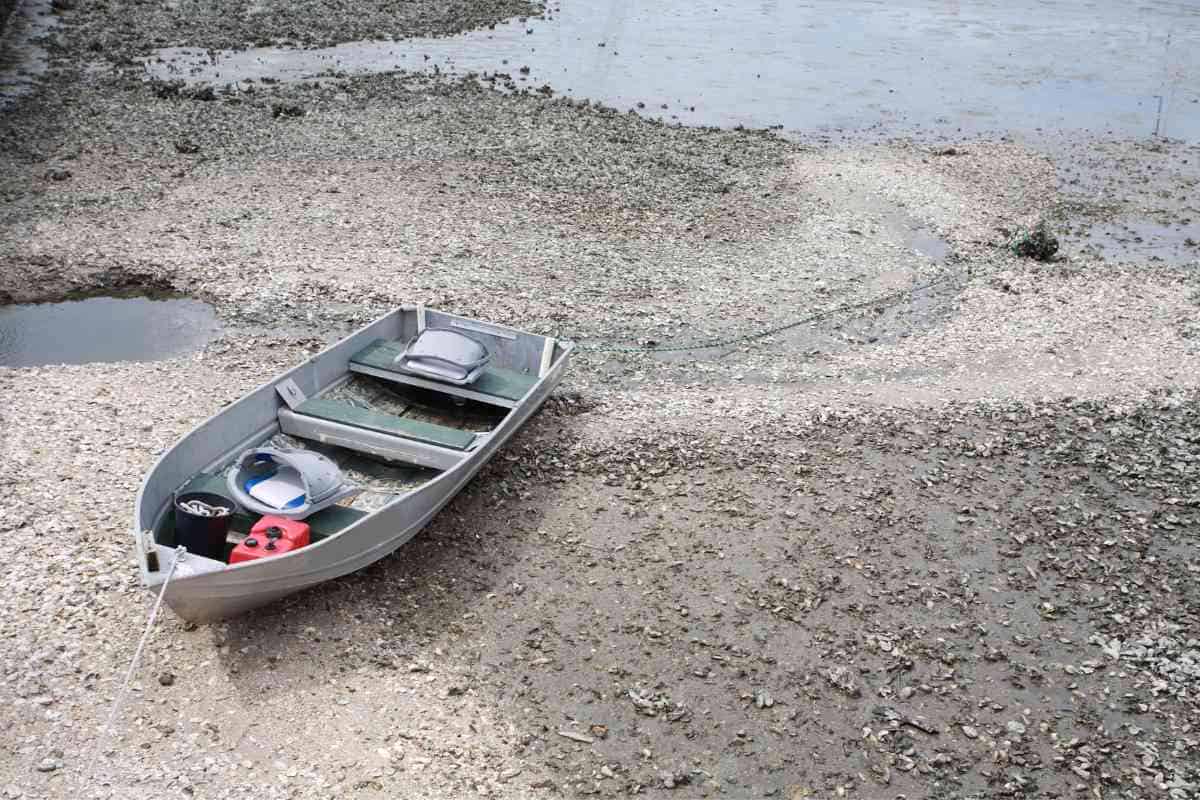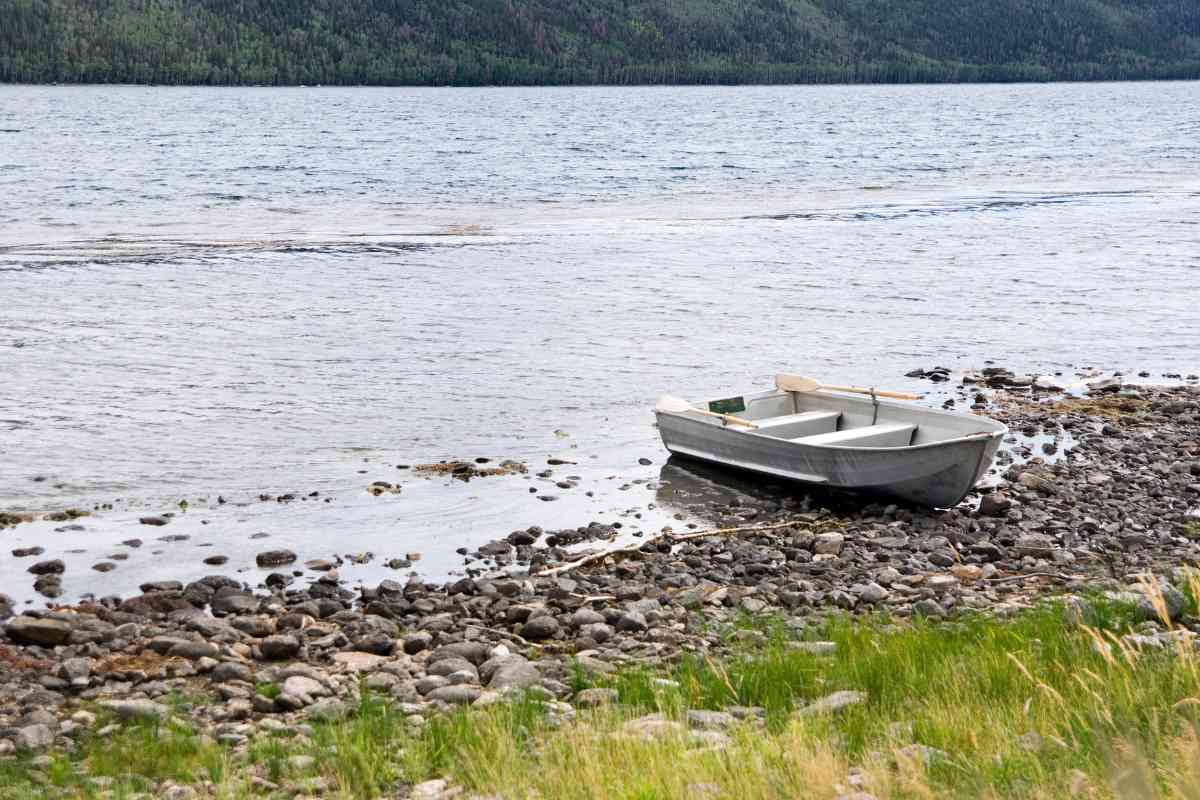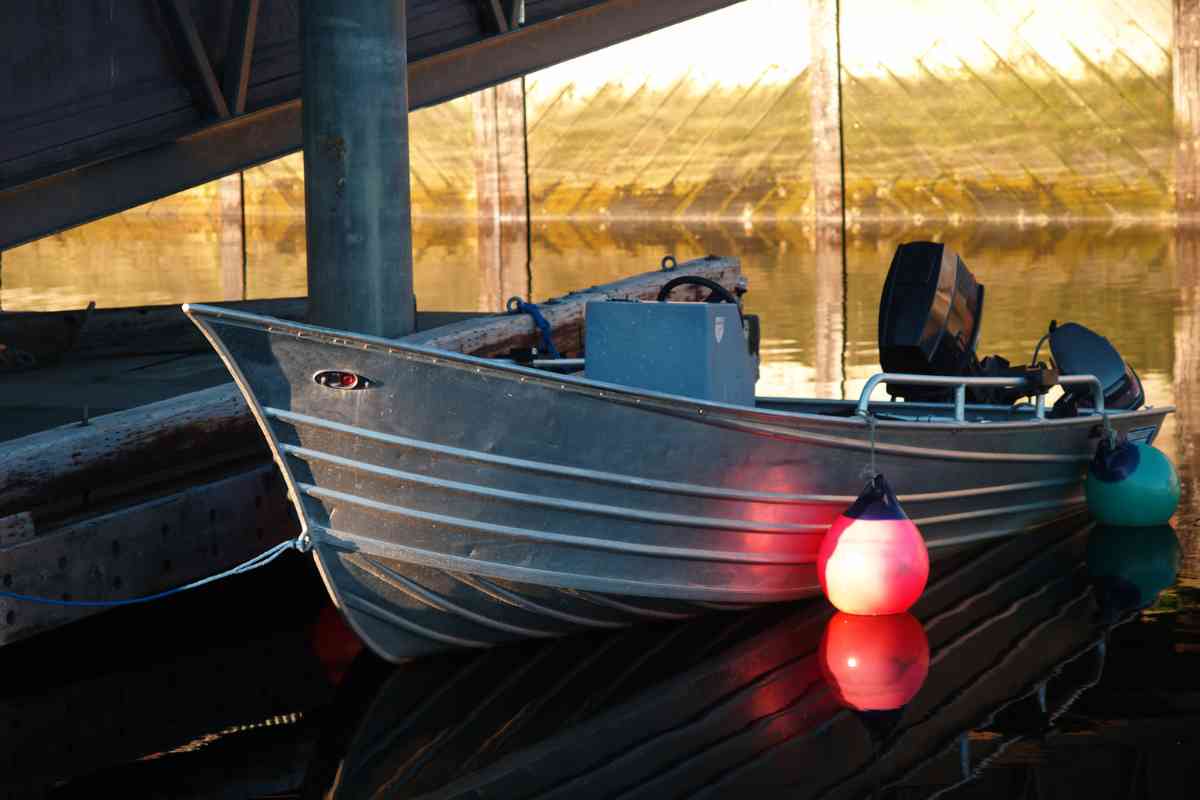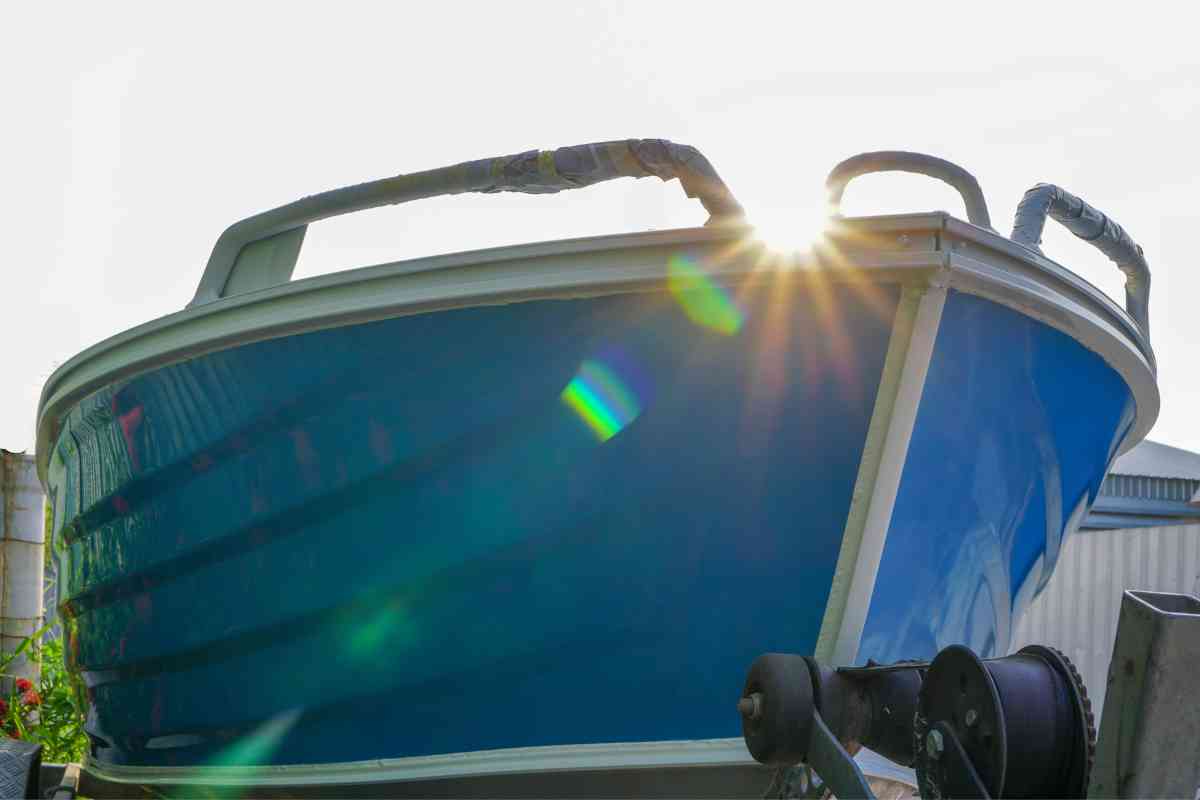Disadvantages of an Aluminum Boat: What You Need to Know
Aluminum boats have been a popular choice for boat enthusiasts for many years. They are known for their lightweight and durability, making them a great option for fishing and recreational activities. However, like any other material, aluminum boats have their disadvantages that boat owners should consider before making a purchase.

What are the downsides of aluminum boats?
One of the main disadvantages of an aluminum boat is its susceptibility to corrosion. Exposure to saltwater and other harsh environments can cause the boat to deteriorate quickly. They are also noisier than fiberglass boats, which isn’t ideal for fishing or hunting.
Another disadvantage of aluminum boats is their cost. They are generally more expensive than fiberglass boats due to the manufacturing process and the cost of materials.
Additionally, aluminum boats are not as customizable as fiberglass boats, which can be a drawback for boat owners who want a unique design.
Despite these disadvantages, aluminum boats still offer many advantages, including their strength and malleability, making them a popular choice for boat enthusiasts.
Disadvantages of Aluminum Boats
While aluminum boats have many advantages, there are also some disadvantages that should be considered before making a purchase. Below are some of the most common disadvantages of aluminum boats:
Weight
One of the biggest disadvantages of aluminum boats is their weight. Aluminum boats tend to be heavier than other types of boats, which can make them more difficult to maneuver and transport.

Cost
Aluminum boats can also be more expensive than other types of boats. While they are generally less expensive than fiberglass boats, they can still be costly, especially if you are looking for a larger boat.
Aesthetics
Aluminum boats are not known for their aesthetics. While aluminum boats can be painted or coated to improve their appearance, they are still often seen as less attractive than other types of boats.
Noise
Aluminum boats tend to be noisier than other types of boats. This is because aluminum is a relatively thin and lightweight material, which can allow sound to travel more easily through the hull.
Handling
Aluminum boats can also be more difficult to handle than other types of boats. This is because they tend to be heavier and less maneuverable, which can make them more challenging to operate in rough water or strong currents.
Corrosion
While aluminum is resistant to corrosion, it is not completely immune to it. Over time, aluminum boats can develop corrosion and pitting, which can weaken the hull and reduce the boat’s durability and resale value.
Strength
While aluminum boats are generally strong and durable, they are not as strong as some other types of boats. This can make them more susceptible to damage from impacts or collisions.
Overall, while aluminum boats have many advantages, they also have some significant disadvantages that should be considered before making a purchase. Buyers should carefully evaluate their needs and preferences to determine whether an aluminum boat is the right choice for them.

Comparison with Fiberglass Boats
Weight
One of the major differences between aluminum and fiberglass boats is their weight.
Aluminum boats are generally lighter than fiberglass boats, which makes them easier to tow and launch. However, fiberglass boats are heavier and have a lower center of gravity, which can provide more stability in rough waters.
Maintenance
Aluminum boats are less susceptible to damage from impacts and abrasions than fiberglass boats, but aluminum boats require more maintenance to prevent corrosion.
Fiberglass boats are more resistant to corrosion, but they can crack or suffer from osmosis if not properly maintained. Both types of boats require regular cleaning, anti-fouling, and repairs to maintain their appearance and durability.
Repair
When it comes to repairs, aluminum boats are easier to weld and fix than fiberglass boats. However, if an aluminum boat is damaged, it may be difficult to find a welder who is skilled in repairing it.
Fiberglass boats require specialized skills to repair, but they can be repaired almost anywhere. The cost of repairs for both types of boats can vary depending on the extent of the damage.
Comfort
When it comes to comfort, fiberglass boats are generally considered to be more comfortable than aluminum boats.
Fiberglass boats have a smoother ride and are less likely to be affected by waves. Aluminum boats are more malleable and can be molded into different shapes, but this can affect their comfort level.
Handling
Handling is another important factor to consider when comparing aluminum and fiberglass boats. Fiberglass boats are generally more stable and easier to handle, especially in rough waters. Aluminum boats are tougher and more durable, but they can be more difficult to handle in choppy conditions.

Price
When it comes to price, aluminum boats are generally less expensive than fiberglass boats. However, the price of both types of boats can vary depending on the size, features, and quality. Aluminum boats are a great option for boat owners on a budget, while fiberglass boats may be a better investment for those looking for a long-lasting, high-quality boat.
Resale Value
Resale value is another important factor to consider when buying a boat. Fiberglass boats generally have a higher resale value than aluminum boats because they are more durable and have a longer lifespan. However, aluminum boats can also hold their value well if they are well-maintained and in good condition.
Maintenance and Repairs
Aluminum boats require regular maintenance to keep them in good condition. Failure to do so can lead to damage and costly repairs. Some of the common maintenance and repair issues with aluminum boats include:
Corrosion
One of the biggest disadvantages of aluminum boats is their susceptibility to corrosion. Exposing an aluminum boatto saltwater, acidic rain, and other harsh environmental conditions can cause the metal to corrode.
This can weaken the structure of the boat and make it less safe to use. To prevent corrosion, owners should regularly clean their boats and apply protective coatings. They should also inspect the boat’s hull and other metal components for signs of corrosion and address any issues promptly.
Welding
Aluminum boats are typically constructed using welded seams. While welding can provide a strong and durable bond, it can also be a source of problems.
Poorly executed welds can weaken the structure of the boat and allow water to seep in. Over time, this can lead to corrosion and other issues.
Owners should make sure that their boats are constructed using high-quality welding techniques and that any repairs are done by experienced professionals.
Equipment

Aluminum boats require specialized equipment for maintenance and repair. This can include welding equipment, paint sprayers, and other tools.
Owners should make sure that they have the necessary equipment on hand or have access to a professional who does. Using the wrong tools or techniques can cause damage to the boat and lead to costly repairs.
Insulation
Aluminum boats can be prone to condensation, which can lead to mold and mildew growth.
To prevent this, owners should insulate their boats properly. This can involve adding insulation to the boat’s walls and ceiling or installing a ventilation system to promote air circulation.
Resin and Gelcoat
Resin and gelcoat are commonly used to protect the hull of aluminum boats. However, these materials can crack and peel over time, leaving the boat vulnerable to damage. Owners should inspect their boats regularly for signs of damage to the resin and gelcoat and address any issues promptly.
Environmental Impact
Aluminum boats are often marketed as a more eco-friendly option compared to fiberglass or wooden boats due to their recyclability. However, the production process of aluminum boats can have a significant impact on the environment.
The process of mining bauxite, the primary source of aluminum, can result in deforestation, loss of habitat for wildlife, and soil erosion. The refining process also requires a significant amount of energy, contributing to greenhouse gas emissions and air pollution.
Additionally, aluminum boats can have a negative impact on aquatic ecosystems. Aluminum is a reactive metal, which means it can release ions into the water, potentially harming aquatic life. Sun exposure can also cause aluminum to oxidize, leading to corrosion and further environmental damage.
While aluminum boats can be recycled, the recycling process itself can also have negative environmental impacts. Recycling aluminum requires a significant amount of energy, and the process can result in greenhouse gas emissions and other forms of pollution.
Overall, while aluminum boats may have some eco-friendly advantages, their production and use can still have negative environmental impacts. It is important for boaters to consider the environmental impact of their vessel and take steps to minimize their impact on the environment.
Comparison Chart: Aluminum Boats vs. Fiberglass Boats
| Features | Aluminum Boats | Fiberglass Boats |
|---|---|---|
| Weight | Generally lighter, easier to tow and launch | Heavier, lower center of gravity for stability |
| Maintenance | More susceptible to corrosion, requires regular care | More resistant to corrosion, but can crack if not maintained properly |
| Repair | Easier to weld and fix, but finding skilled welders may be a challenge | Requires specialized repair skills, but repairs can be done almost anywhere |
| Comfort | Less comfortable, tend to have a noisier ride | Generally more comfortable and provide a smoother ride |
| Handling | Tough and durable, but more difficult to handle in rough waters | More stable and easier to handle, especially in rough waters |
| Price | Generally less expensive | Can be more expensive, especially for high-quality boats |
| Resale Value | Generally lower resale value | Generally higher resale value due to durability |
| Environmental Impact | Aluminum production and boat use have environmental impacts | Fiberglass boats have less environmental impact, but production can still have negative effects |
Note: The chart provides a general overview of the key differences between aluminum and fiberglass boats. Individual models and manufacturers may vary in specific features and characteristics.
Conclusion
In conclusion, both aluminum and fiberglass boats offer unique advantages and disadvantages that boat enthusiasts should carefully consider before making a purchase.
Aluminum boats are known for their strength, malleability, and lower cost compared to fiberglass boats. However, they are heavier, require more maintenance to prevent corrosion, and may not be as aesthetically appealing. On the other hand, fiberglass boats are generally more comfortable,
